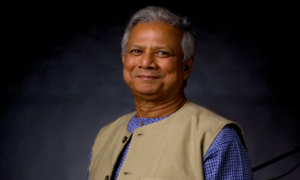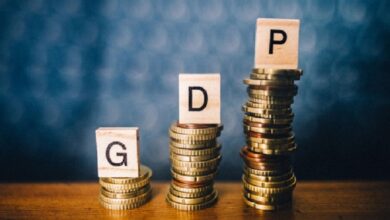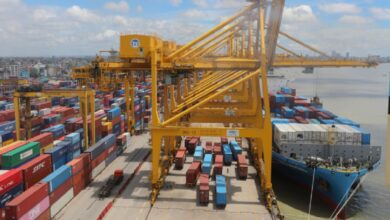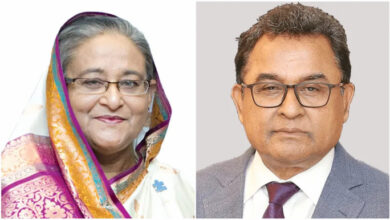AFP analysis: 5 challenges facing Bangladesh’s interim government
Analysts say the new government that will be formed will face major challenges.
Despite the fall of Sheikh Hasina in the face of the student uprising in Bangladesh, the days ahead will not be easy for the interim government. Analysts say the new government that will be formed will face major challenges.
The 84-year-old peace Nobel laureate will lead the interim government that is going to be formed after the resignation of Sheikh Hasina. Muhammad Yunus.
Army has played an important role in the resignation of Sheikh Hasina. The army has to play a role in shaping the future of the country.
The new interim government has to deal with five main challenges.
the army
The interim government is set to be civilian-led, but it is unclear how much control the military will have.
Michael Kugelman, director of the South Asia Institute at the Washington-based Wilson Center, said, ‘The military will have a major leadership role in this interim government, even if they are not formally leading it.’
Although the movement started demanding reform of quota in government jobs, the position of the military forces decided the fate of the government at the end of the government.
The army disagreed with the police and other forces on the use of force to quell the protests. The end of the army’s loyalty to the prime minister led to the downfall of Sheikh Hasina.
Kugelman also said, ‘many in Bangladesh fear that if the interim government’s term in Bangladesh is extended, it may strengthen the control of the military. So far, however, it seems that the Bangladeshi army will not play a central role in politics as it did decades ago.
safety
More than 400 people have been killed in weeks of clashes between protesters and law enforcement.
After Sheikh Hasina left the country, her associates are facing public anger. Human rights organizations have been expressing concern over attacks on Hindus.
Amnesty International’s Smriti Singh said ensuring the protection of people’s right to life, freedom of speech and peaceful assembly and ending violence should be the first task for any interim government.
Ali Riaz, a political scientist professor at the Illinois State University in the United States, said that if the security forces cooperate with the government neutrally, he believes that the situation will be calm.
the economy
Since 2009, Bangladesh’s annual growth has been more than six percent. Bangladesh surpasses India in terms of per capita income in 2021.
But not everyone in Bangladesh got the benefits of economic growth. According to the 2022 government estimates, more than 18 million Bangladeshis aged 15-24 were unemployed.
The recent turmoil has also shaken the garment industry. Garment factories had to be closed in the face of violence.
About 3,500 factories in this sector account for 85 percent of Bangladesh’s export earnings of $55 billion.
Many leading brands including Levi’s, Zara and H&M import clothes from Bangladesh. Bangladesh ranks second only to China in garment exports.
US clothing manufacturer Hula Global said it had already removed some of its production. Karan Bose, head of the company said, “We have stopped all new orders going to Bangladesh for the rest of the year.
election
Sheikh Hasina’s Awami League won the election last January without any credible opposition.
Thomas Keen, an analyst at the International Crisis Group, said part of the reason the protest movement gained widespread support was that the country had not held competitive elections in 15 years.
“The interim government will have to start the long process of rebuilding democracy in Bangladesh from the path Bangladesh has deviated from in recent years.”
As the interim government is yet to be formed, it is not yet certain how long it can stay in power, when elections can be held and who can contest.
justice
In Bangladesh, the army and the police have to ensure the safety of the people who have failed to suppress the movement.
Since Sheikh Hasina’s fall, the police chief and a high-ranking army officer have been sacked. Those who were arrested during the agitation started to be released. Along with that, political prisoners are also being released.
Gwen Lewis, the UN Resident Coordinator in Bangladesh, said, ‘Hopefully this new interim government will start afresh and return a new system… one built on trust and held accountable to the people.’
Many protestors will demand justice for Sheikh Hasina and Sheikh Hasina’s allies will be brought to justice.
The crisis group’s Keane said the new administration should “conduct a credible investigation into the tragic events that have taken place in recent times”.





